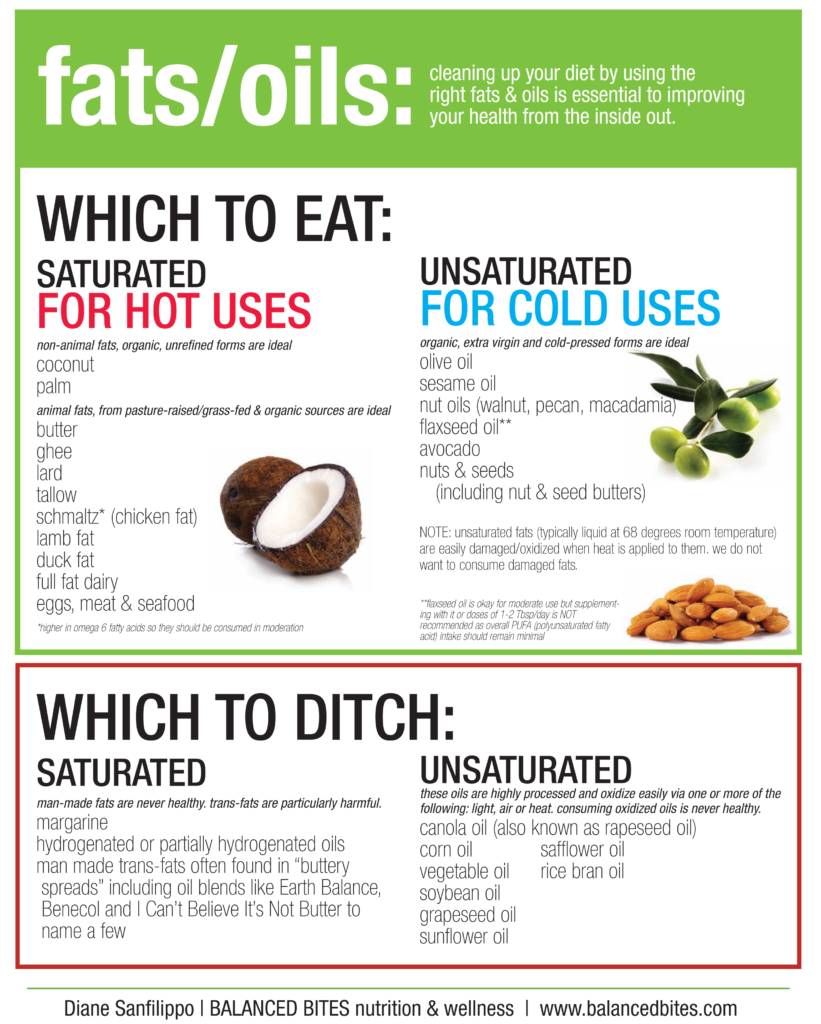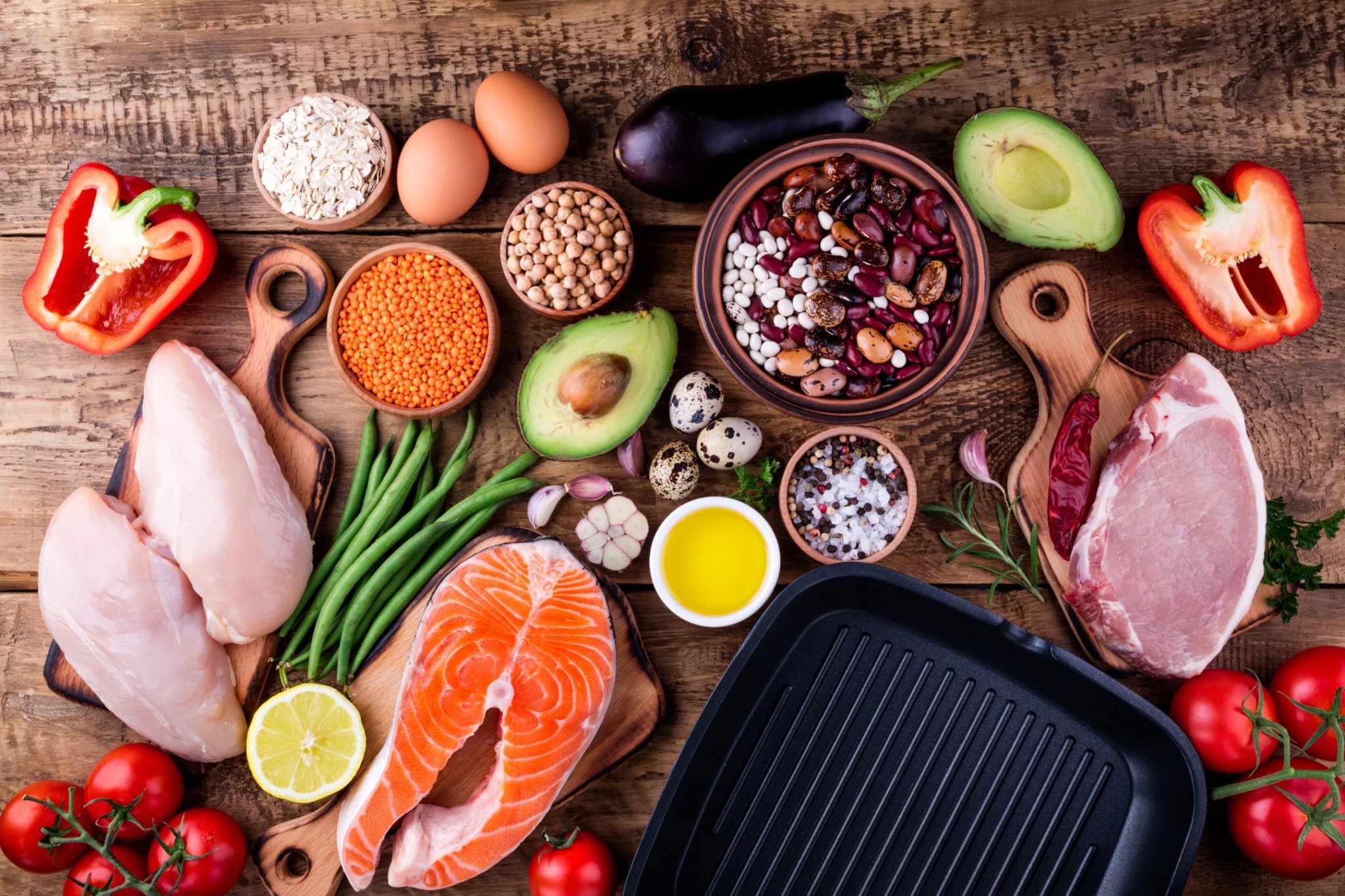There are many different nutritional approaches to losing weight with PCOS. No matter which one you decide is best for you, it will start with three words: protein, carbs, and fat. The problem is that women eat food, not nutrients. So when you read advice like “increase your protein,” it can be hard to put that into action.
Umm ok, so what FOOD should I actually eat?
I am going to give you three steps for a PCOS diet that will help you decide what foods to eat.
- Eat lean protein with every meal
- Combine that protein with a healthy carb
- Cook your protein and carbs with healthy hats
If you want to lose weight or if you have been trying to lose weight for a while, I recommend that you spend some time and energy getting really good at doing these three things.
So is there more to losing weight with PCOS than these three simple steps? Yes! But until you are doing these three things 90% of the time, the other efforts will not do much good.
Eat Lean Protein With Every Meal
Eating enough protein is essential to weight loss. Unfortunately, nearly every woman I’ve coached has started out with a diet that was too low in protein for optimal weight loss. The good news is that this is easy to fix. Just eat a serving of lean protein with every meal. To gauge how much a serving is for you, select a portion that is the size of the palm of your hand.
Here are my top picks for lean protein:
- Eggs
- Chicken
- Turkey
- Pork Loin
- Grass-Fed Beef
- Wild-Caught Fish
- Vegan (soy-free) Protein Powder
- Collagen Protein
- Powder
- Organic Tofu and Tempeh if you are vegan
Protein is important because it builds lean muscle mass, keeps you satiated, and helps to stabilize blood sugar.
There are plenty of research studies which show higher that a protein intake helps all types of people stay lean. Plus, there are some PCOS-specific studies which also indicate that protein intake is important for weight loss like this recent study published in The American Society for Nutrition.
Combine Protein with a Healthy Carb
There’s a lot of focus on cutting carbs when you have PCOS. This makes sense because studies indicate that switching from a diet high in carbohydrates to a moderate or low carbohydrate diet will help you drop pounds and improve the ovulation, insulin sensitivity, and reduce your risk for heart disease.
That said, just cutting out carbs completely will not solve your problem. You’ll lose weight for a while, but the results rarely last. Low energy levels, increased cravings for sweets, and out of balance hormones often lead to sugar binges and rebound weight gain.
Instead of cutting our carbs indiscriminately, eat one serving of healthy carbohydrates with every meal. Eating healthy carbs and protein together will:
- Keep you feeling energized all day
- Reduce carb cravings
- Help you to lose weight and keep it off
- Get the fiber you need for a healthy gut (which is important for PCOS!)
A diet with a moderate amount of carbs will work pretty well for most of us. Women with PCOS should avoid two mistakes when it comes to carbs:
- Overestimating portion sizes. This is pretty easy to fix. A serving size of healthy carbs for you will be a portion that can fit into your cupped hand. Go ahead, spoon some cooked rice out into your cupped hand. I bet it is less than you typically put on a dinner plate.
- Most of your carbs are refined food products like commercially-made bread, pasta, sweets, chips, and cereals.
Here’s the problem with highly refined carbohydrates:
Plenty of calories, poor nutrition. Manufactured food products are low in nutrients and fiber, but high in additives, sugars, and calories. For every calorie of highly-refined food you eat, you are receiving very little actual nutrition.
Trigger cravings and binges. Most manufactured foods are hyper-palatable. That means they are formulated by the manufacturer so that you will find it difficult to stop eating them and will find yourself craving them.
They aren’t doing your insulin resistance any favors. Refined high-carb food products typically cause your blood sugar to spike. Thus, they aggravate PCOS symptoms like insulin resistance, fatigue, mood swings, and cravings.
So what should you eat instead? Minimally processed, carbohydrate-dense foods. They are more nourishing, keep you feeling full and cause a gentle rise in blood sugar. Here is a list of the best carbs for a nutritious PCOS Diet:
- Fruit
- Yams
- Sweet Potatoes
- White Potatoes
- Squash
- Root Vegetables
- Beans
- Quinoa
- Oats
- Black Bean, Chickpea, or Lentil Pasta
- Bulgar
- Barley
- Sprouted Grain Bread
Check out this blog post to learn more about eating the right carbs in the right amounts.
Cook With Healthy Fats
Cooking or topping your lean protein and healthy carbs with healthy fats will add flavor to your meal and help fight PCOS symptoms. There are two reasons why healthy fats should be part of your PCOS diet:
- Omega 3 fatty acids have been shown to lower testosterone in women with PCOS. High testosterone levels are the cause of pesky symptoms like acne and hirsutism. A diet higher in Omega 3 fats could help you normalize your hormones.
- Eating high amounts of the hydrogenated oils, trans fats, and omega-6 fats found in processed foods puts you at risk for heart disease. And coincidentally so does having PCOS. Even if you have no signs of heart disease now, it is a good idea to cook with heart-healthy fats to reduce your risk.

Here are some examples of healthy fat sources for a PCOS diet:
- Avocados and Avocado oil
- Nuts and Nut Butters
- Coconuts and Coconut Oil
- Fatty Fish
- Ghee or Butter from Grass-Fed Cows
- Olives and Olive Oil
- Fish Oil Supplements (especially if you do not eat seafood)
Avocado, coconut oil, and ghee are the best choices for cooking at high heat. Olive is best suited for lower temperature cooking or used as a dressing. Take a look at this helpful infographic to learn more about cooking with healthy fats.






